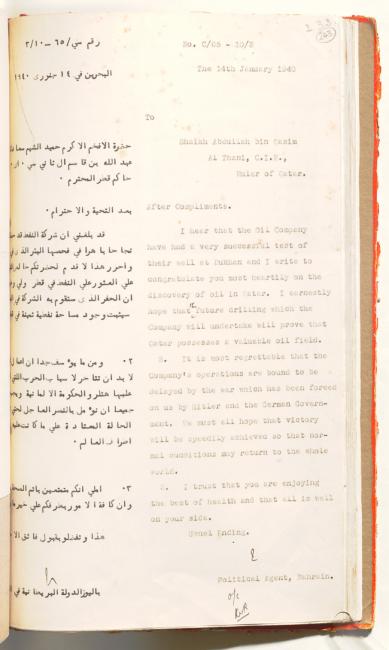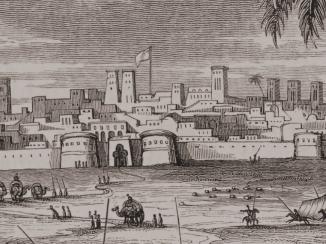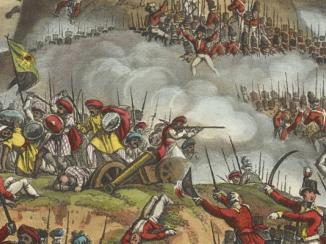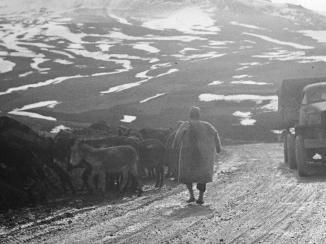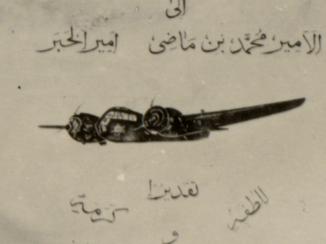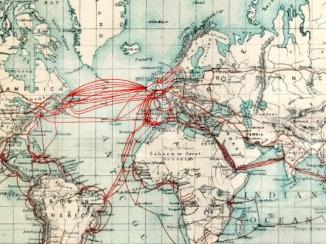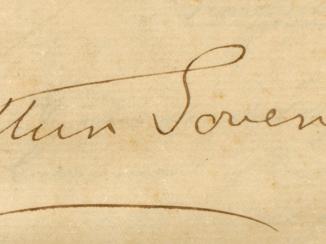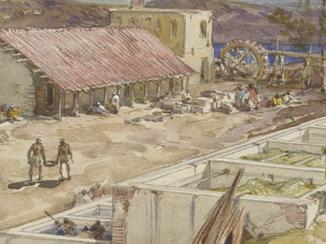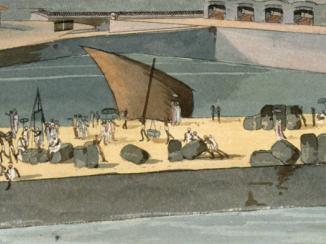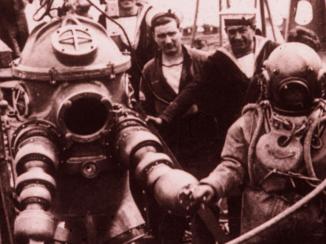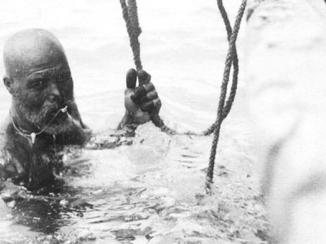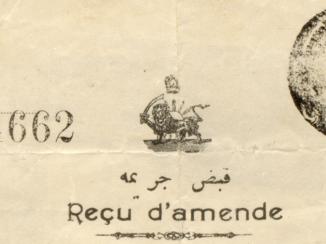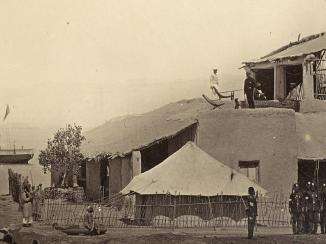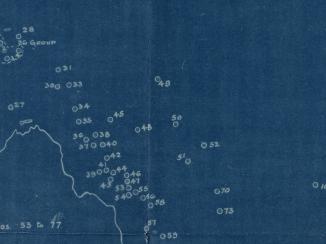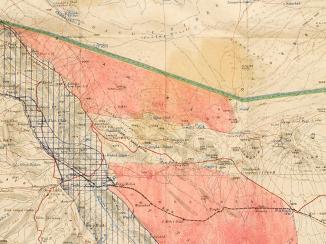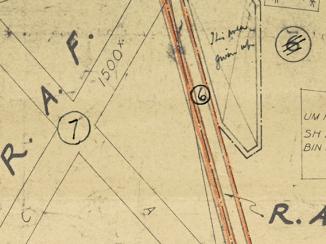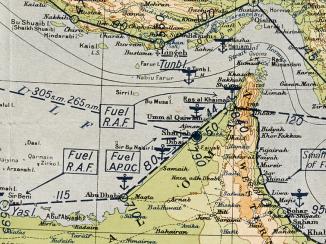Overview
Extending round a shallow bay on the sheltered western shores of the Qatar peninsula, Zubarah 18th-century town located 105 km from Doha. occupies a special place in Qatari memory, thanks to its status as one of the earliest and most important trading and pearl fishing ports on the Gulf. Very little remains of Zubarah 18th-century town located 105 km from Doha. now, having been long since abandoned, but its relevance to the history of the region has been recognised by UNESCO, which has designated the town as Qatar’s first World Heritage site A place that is listed by the UNESCO as of special cultural or physical significance. .
Documents contained in the archives of the East India Company reaffirm Zubarah’s prominent position in the Gulf at the end of the eighteenth century. Moreover, they offer us a rich insight into Qatar’s development since that time.
The First Recorded Mention of Qatar in the Bushire Residency Files
The first mention of Qatar in the Bushire Residency An office of the East India Company and, later, of the British Raj, established in the provinces and regions considered part of, or under the influence of, British India. files is a discussion of the intense rivalry that existed between the inhabitants of Zubarah 18th-century town located 105 km from Doha. and Bahrain in the late eighteenth century. In October 1782, the East India Company’s Resident at Bushire reported to his colleagues in Bombay of an attack by the Utubi (Bani Utbah) tribe of Zubarah 18th-century town located 105 km from Doha. against the Al Madkhur of Bahrain, during the course of which ‘several lives were lost on both sides’.

This reference is the first of many to offer fascinating insights into important moments in Qatar’s history. Moments such as these, which must necessarily be viewed through the prism of the British Empire’s own historic interests in the region, cast light on Britain’s relations with the rulers and inhabitants of Qatar.
First Survey of Qatar’s Coastline
Throughout the 1820s, Britain’s Indian Navy carried out the most comprehensive survey of the Gulf’s coastal waters to date, using modern trigonometric surveying methods. In 1822, the Honourable Company’s ships, Discovery and Pysche, arrived off the eastern coast of Qatar to survey in detail the town of El Biddah and its coastal waters.
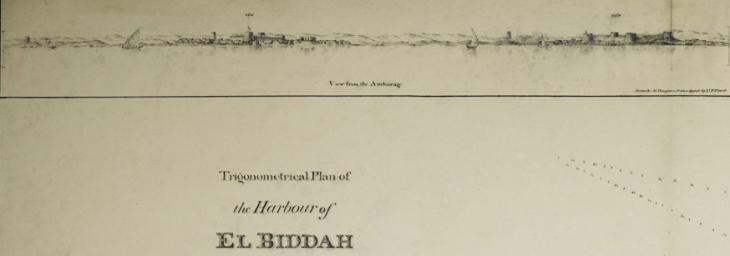
The sketch produced in 1823 by the Discovery’s draughtsman Lieutenant Houghton, is the earliest known visual representation of Qatar found in the India Office The department of the British Government to which the Government of India reported between 1858 and 1947. The successor to the Court of Directors. Records. From the decks of the Discovery and Pysche, the British officers saw El Biddah as groups of houses tightly clustered around two forts, many of which had been damaged the previous year, when the East India Company’s brig Vestal bombarded the town, as punishment for its inhabitants’ alleged involvement in piracy.
1868 Agreement between Qatar and the British
The conflict between the forces of Bahrain and Abu Dhabi against Qatar, which took place between 1867 and 1868, led to the establishment of formal political relations between Qatar and Great Britain.
On 12 September 1868, the ruler of Qatar, Shaikh Muhammad bin Thani, signed a treaty with Britain’s Political Resident A senior ranking political representative (equivalent to a Consul General) from the diplomatic corps of the Government of India or one of its subordinate provincial governments, in charge of a Political Residency. in the Gulf, Lewis Pelly. In a letter written by Pelly to a compatriot working for the British India Steam Navigation Company, dated 6 December 1868, Pelly wrote that ‘the arrangements […] on the coasts of Bahrain, Guttur [Qatar] and Abuthabee [Abu Dhabi] have stood excellently; in no single point have they as yet broken down’.
![Letter from Lewis Pelly, On board Sind off Lingah [Bander-e-Lengeh], Persia, to Gerald Fitzgerald, dated 6 December 1868. Mss Eur F126/38, ff. 124v–126](https://www.qdl.qa/sites/default/files/styles/standard_content_image/public/mss_eur_f126_38_0248_3.jpg?itok=Fu2RbBr-)
Discovery of Oil
The discovery of oil across the Middle East and Gulf region saw Britain forge closer ties with Qatar. In 1935, Shaikh ‘Abdullāh bin Jāsim Āl Thānī signed an exploratory oil concession with the Anglo-Persian Oil Company. Four years later, the first significant evidence of oil deposits in Qatar were found at rig number one in the west of the country.
A telegram from the Bahrain Political Agent A mid-ranking political representative (equivalent to a Consul) from the diplomatic corps of the Government of India or one of its subordinate provincial governments, in charge of a Political Agency. , to the Political Resident A senior ranking political representative (equivalent to a Consul General) from the diplomatic corps of the Government of India or one of its subordinate provincial governments, in charge of a Political Residency. , dated 11 October 1939, read ‘Petroleum Development Qatar have had slight show of oil in their test well near Zekrit. Drilling continues’.
On 14 January 1940, the Bahrain
Political Agent
A mid-ranking political representative (equivalent to a Consul) from the diplomatic corps of the Government of India or one of its subordinate provincial governments, in charge of a Political Agency.
wrote to Shaikh ‘Abdullah to personally congratulate him on the discovery of oil in Qatar, stating that he ‘earnestly hoped that future drilling will prove that Qatar possesses a valuable oil field’.
